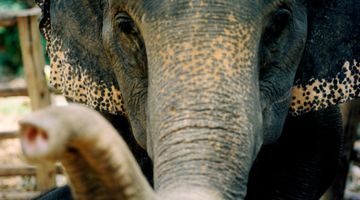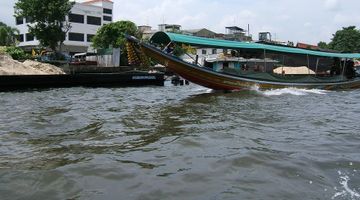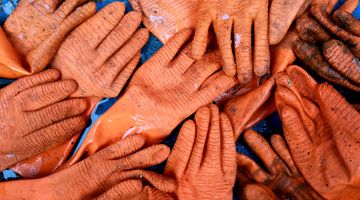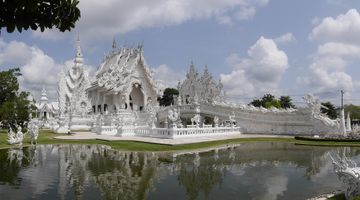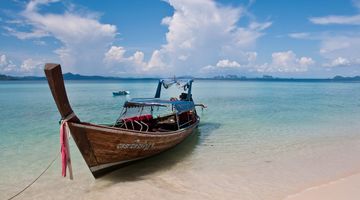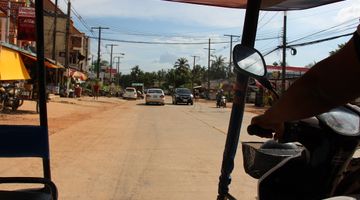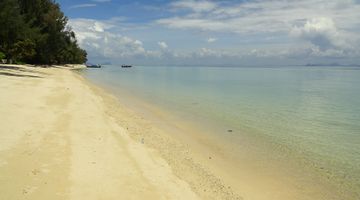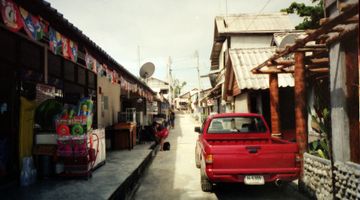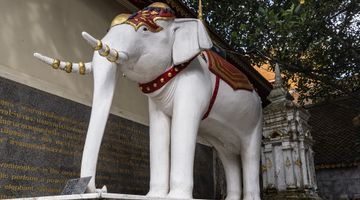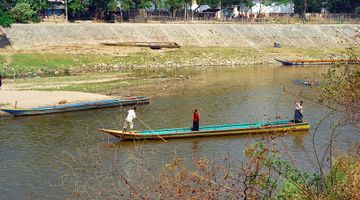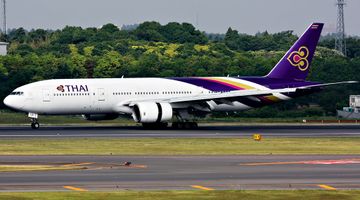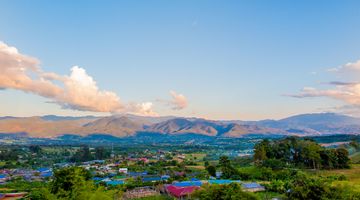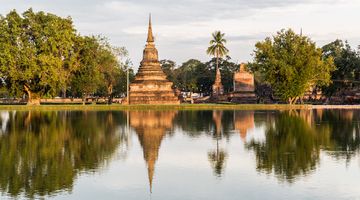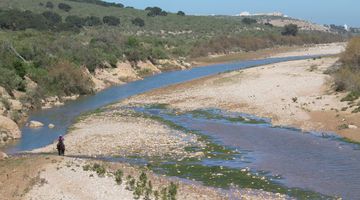Vaccinations for Thailand – Travel Advice and Health Tips
Thailand is known for its sunny climate and cheerful locals with even sunnier dispositions, and visitors about to head off to Thailand are usually preoccupied with excited thoughts of bikinis, coconuts and cheeky monkeys; and vaccinations tend to take a backseat. Amongst your travel preparation plans for purchasing summery shorts, travellers need to squeeze time in to understand all the vaccinations needed for Thailand as well as important health information for travellers. Travel medical insurance and a well-kitted travel medical box will help travellers have the peace of mind to enjoy an ice-cold coconut in the shade of a palm tree and fully enjoy their much-anticipated holiday in paradise.
WHO recommended vaccines for Thailand
With its warm climate, picturesque beaches and exotic food, Thailand is a popular holiday and travel destination for many people. Much like any trip to a new place, its important to take the necessary precautions to make sure that your holiday is stress-free and enjoyable. Taking note of what vaccinations are needed for Thailand travel needs to high up on any savvy traveller’s to-do list. The World Health Organisation recommends that one gets vaccinated against typhoid, cholera, Hepatitis A, Hepatitis B, rabies and Japanese encephalitis before heading to Thailand. It is also a wise decision to have an influenza vaccine before jumping onto the plane.
It’s also important for all childhood vaccines to be up to date, such as, polio, tetanus/diphtheria/whooping cough, and measles/mumps/rubella/chickenpox.
For any travellers over 65 years of age, shingles and pneumonia vaccines are recommended as a precautionary measure. While there is absolutely no risk of yellow fever in Thailand, the Thai government will require proof of a yellow fever vaccination for travellers entering from a country with high Yellow Fever risk.
The main risk areas
In addition to getting vaccinated, it’s important to understand where the main sources of diseases in Thailand come from to further prevent getting sick.
-
Thailand boasts a wealth of scrumptious and cheap street food and most street corners are filled with delicious smells and tasty food getting whipped up in giant woks. Unfortunately, part and parcel of the exotic street food scene comes poor sanitation and lower standards of hygiene. This is where your typhoid vaccination will come in handy. To avoid the street stalls altogether out of fear of getting sick, wouldn’t allow you the full cultural experience of being in Thailand but one should try to opt for the cleaner looking food stalls, reduce germ exposure as much as possible and to only drink bottled water.
-
Rabies is another small risk that can be prevented by staying away from wild animals, street dogs and not feeding wild monkeys.
-
Prevent mosquito and bug bites as much as possible by wearing loose-fitting, long sleeves and using an anti-insect repellent as mosquito bites are the cause of malaria. Anti-malaria tablets can also be taken prior to travel especially for visitors who plan on travelling to remote areas in Thailand or for visitors who plan on doing extensive hiking in the Thai countryside.
-
The Hepatitis B virus is passed from person to person by the swapping of bodily fluids such as blood or semen and so travellers should avoid this at all costs. Staying away from non-sterile medical or cosmetic equipment is also highly recommended.
Is there malaria in Thailand?
Fortunately, the current status of malaria in Thailand is relatively low risk for those in the more touristy cities, but the risk does increase the further one travels into the countryside.
While there is no risk of malaria in the urban areas of Thailand, such as the big cities of Bangkok, Chiang Mai or Pattaya; travellers need to be mindful of the remote areas as these rural areas carry a risk of malaria infected mosquitos.
Travellers who are planning trekking trips through Thailand or travellers who plan on doing a great deal of outdoor activities, such as rock climbing or jungle trekking, are advised to take anti-malaria medication prior to take-off. January to December are the highest risk months for malaria; and so visitors in Thailand over the festive season need to practice mosquito avoidance behaviours diligently to minimise threat.
Other mosquito-borne diseases to be aware of
Aside from malaria, other mosquito-borne diseases are also issues in Thailand. Dengue, zika, Japanese encephalitis and chikungunya can also occur in Thailand as a result of mosquito bites.
While there are no vaccination for the three latter, the Denge vaccine was introduced to the market a couple of years ago. It does not protect you 100% but helps avoid getting the most serious haemorrhagic form of denge fever.
Travellers are always advised to take various preventive measures to protect themselves against mosquito bites.
-
Exploring rice paddies at dawn or dusk should be avoided as well as large standing bodies of water.
-
Travellers should also generously apply and reapply mosquito repellent that contains DEET, picaridin, OLE or IR3535 when outdoors or when exploring any mosquito hotspots.
-
Sleeping in rooms that are air-conned with closed doors and windows is advisable, as well as sleeping under a mosquito-net if possible. Keeping a strong fan on you while sleeping is also helpful in keeping mosquitos at bay, as they are not strong fliers and the concentrated blowing air will protect you during the night.
-
Travellers should also bring along plenty of long-sleeve shirts and long pants and try and cover up exposed skin as much as possible. Clothing that has been treated with an insect repellent is also a good idea and some people even suggest wearing light coloured clothing as a means of avoiding mosquito bites.
Where can I get medical help while in Thailand?
Fortunately for travellers who do get sick or injured while travelling in Thailand, the healthcare in The Kingdom is easily accessible, relatively affordable and of a high quality.
In the big cities such as Bangkok, Chiang Mai, Phuket, Pattaya and Samui, there are excellent international hospitals that specifically cater for travellers. Many of the doctors at these hospitals speak fluent English and have been trained at some of the best medical schools in the world; and so travellers can rest assured that they are in excellent hands. The support staff and nurses are also generally bilingual in the bigger cities with Bangkok offering the widest range of specialists. Expect to pay from THB600 for a consultation; all the medicines and blood tests are paid extra.
For travellers who cannot afford or cannot locate a private high-end hospital, public healthcare in Thailand is fortunately still of great quality. Public hospitals have a high standard of care with excellent doctors and nursing staff although travellers are likely to run into a language barrier. From THB300 for a consultation.
In the more rural areas of Thailand one will be able to find only basic medical care and English speaking medical staff is not a guarantee. Naturally, the less commercialised areas will present more of a language issue for tourists who want to speak to a doctor or nurse. From THB100 for a consultation.
Do I need a travel insurance?
With a high incident rate of motorbike and scooter accidents in Thailand, as well as the potential for food poisoning and snorkelling and diving accidents travel insurance is highly recommended for travellers. STA Travel Insurance as well as World Nomads are well-known insurance companies for those travelling to Thailand on holiday. Be sure to double check all the terms and conditions attached to your medical insurance plan before leaving so that you know what to do and expect should anything go awry while travelling. Travellers should also know all the details and fine print of what they are covered for in the case of a medical emergency. It is also wise to ensure that a medical evacuation back to your home country is included.
Useful tips for staying safe and sound in Thailand
Obviously practicing mosquito avoidant behaviour, getting comprehensive medical travel insurance and double checking all your vaccinations are key elements to staying safe in Thailand, but there are also other behaviours to practice that can keep you healthy and happy while exploring the tropical wonderland.
-
Stay hydrated with only bottled water and plenty of it. Make sure that all drinks are unopened, request drinks with no ice, wash your hands before eating meals and rinse your fruit in bottled water before eating it.
-
When eating from food stalls avoid fresh produce that has been rinsed with tap water and avoid raw meat and fish as food poisoning or food-borne disease may occur as a result of poor sanitation conditions.
-
Wear plenty of sunscreen, sunglasses and a hat when outside. Thailand is known for its sunny climate and beaches but with this comes sunstroke for those who are not mindful of excessive sun exposure. Pack a bag of protective coverings, such as a sarong when going island-hopping, snorkelling or hiking to avoid sunburn.
-
Home to an abundance of beautiful, exotic animals, Thailand is any nature lover’s paradise. Having said that it is very important to avoid feeding or petting wild animals as bats, monkeys and dogs are likely to carry the rabies virus which can be transmitted through a bite or scratch from the infected animal.
-
Avoid swimming in freshwater streams or lagoons as it is not uncommon for them to be contaminated by harmful chemicals or pesky parasites in Thailand. Unfortunately, the lack of harsh environmental rules and regulations means that sewage outlet pipes can sometimes pour into the sea or lagoons risking the health of animals and humans.
-
Filled with an abundance of adventure activities, adrenaline junkies in Thailand will have no shortage of fun things to occupy themselves with. From snorkelling amongst coral reefs in Koh Tao to rock climbing in Krabi, Thailand has it all. However, with these sports and pastimes, comes an increased risk of injury. Visitors would do well to take all the necessary safety precautions when engaging in high-risk activities. Double-check your safety equipment, do not participate in these activities while intoxicated and be as careful and cautious as you can.
-
Only rent a motorbike or a scooter if you are an experienced driver with a license. The road rules and traffic signs in Thailand are suggestions rather than regulations and the roads tend to be a cheerful, chaotic hustle and bustle of overloaded bikes and tuk-tuk drivers in a hurry.
-
Heat rash is a common occurrence for travellers who might not be used to the heat or balmy weather conditions of Thailand. This can be avoided by using a talcum powder on your body after showering and drying your body with dry, clean towels. This will help you prevent any pervasive fungal infections that would put a damper on any holiday. Fast-acting antifungal creams and powders are available in all pharmacies and even 7/11 without prescription.
-
Pack a well-stocked travel medical kit to assist you in the event of any injury or sickness. Handy medications to pack include: a good antidiarrhea medicine, such as Imodium; electrolyte powder, to prevent dehydration; an antimicrobial ointment, for cuts or scrapes; and an antihistamine, in the event of an allergic reaction to anything. Your medical kit should also include hydrogen peroxide, iodine, or rubbing alcohol to prevent infection of any open wounds that might occur. Bringing along toilet paper or tissues is also a great idea as not all public bathrooms offer this.
-
Lastly, don’t forget to pack your travel insurance ID card in the event that you need to visit the hospital.




